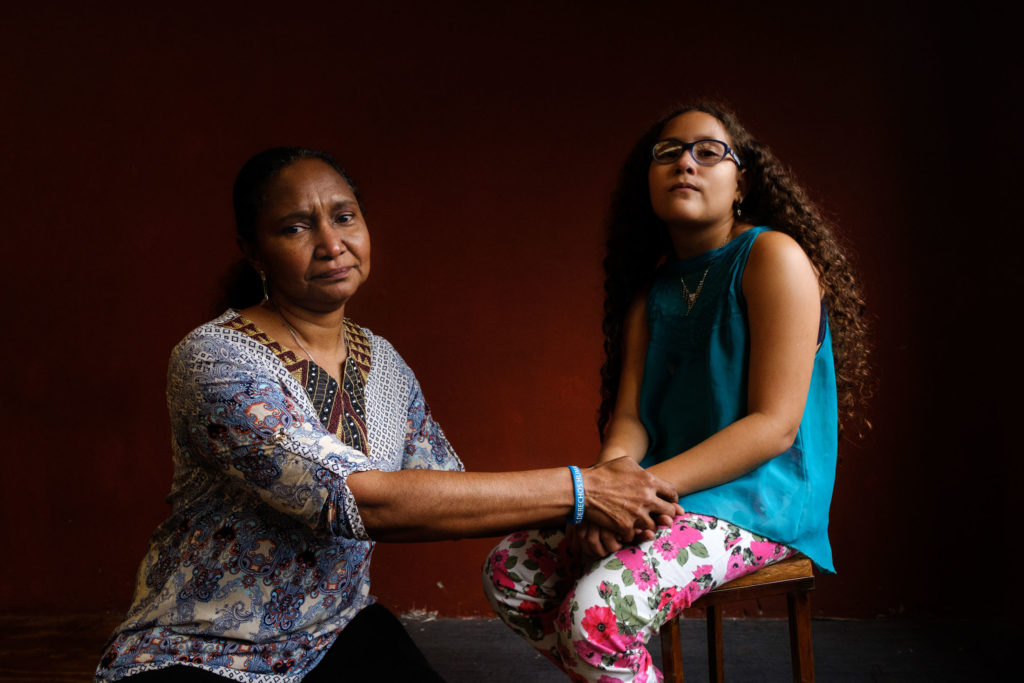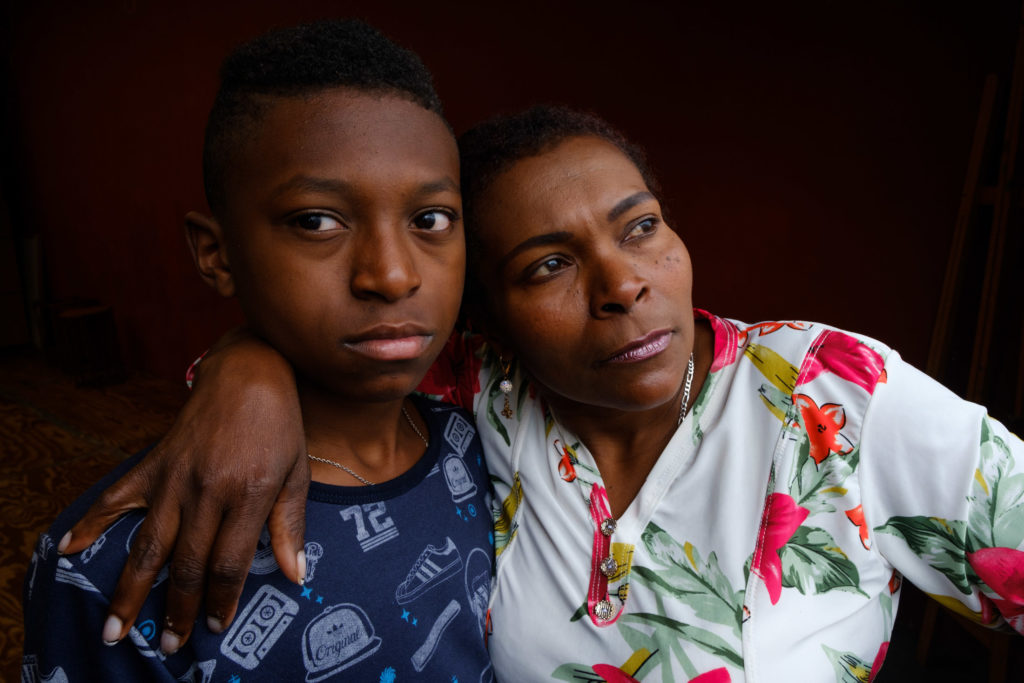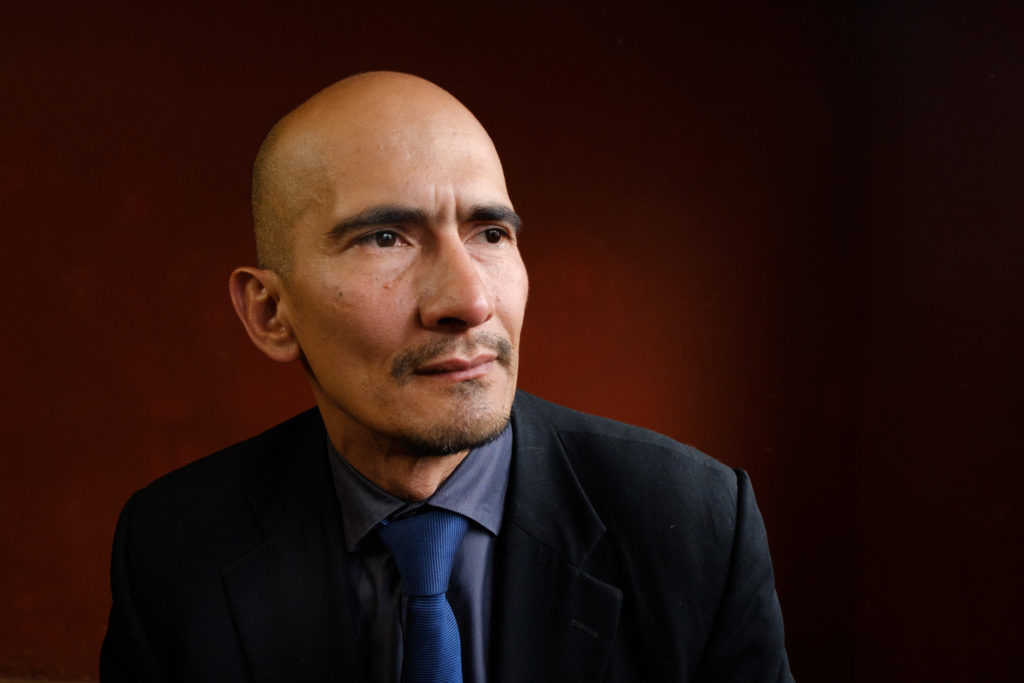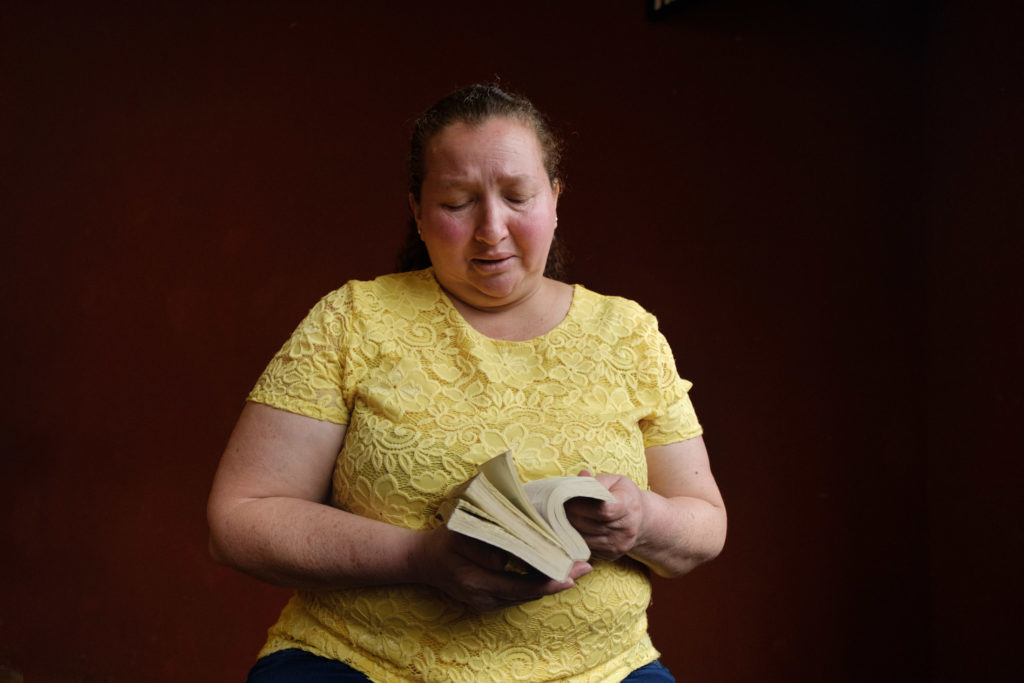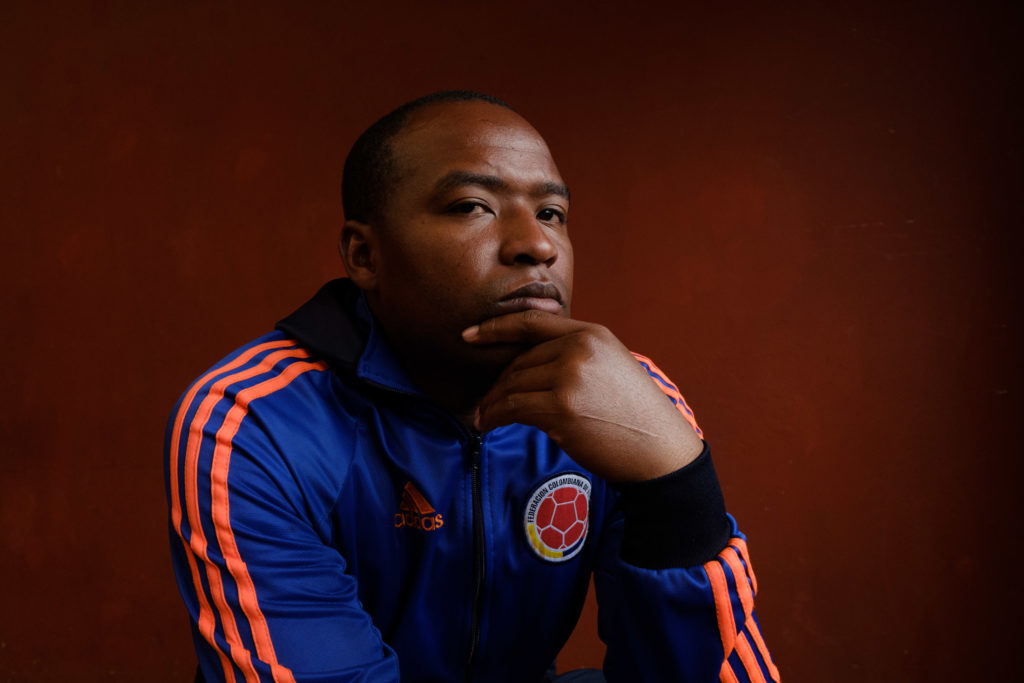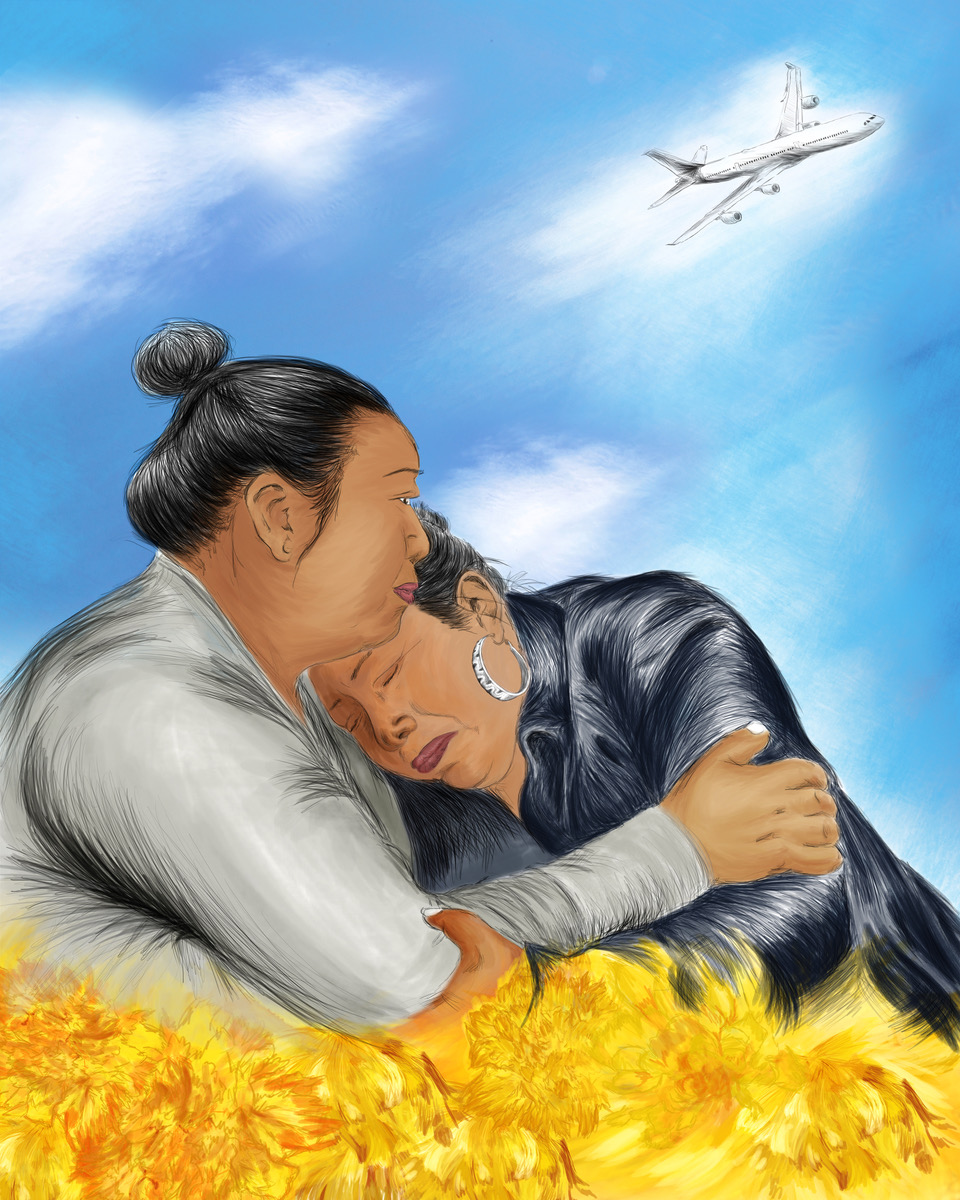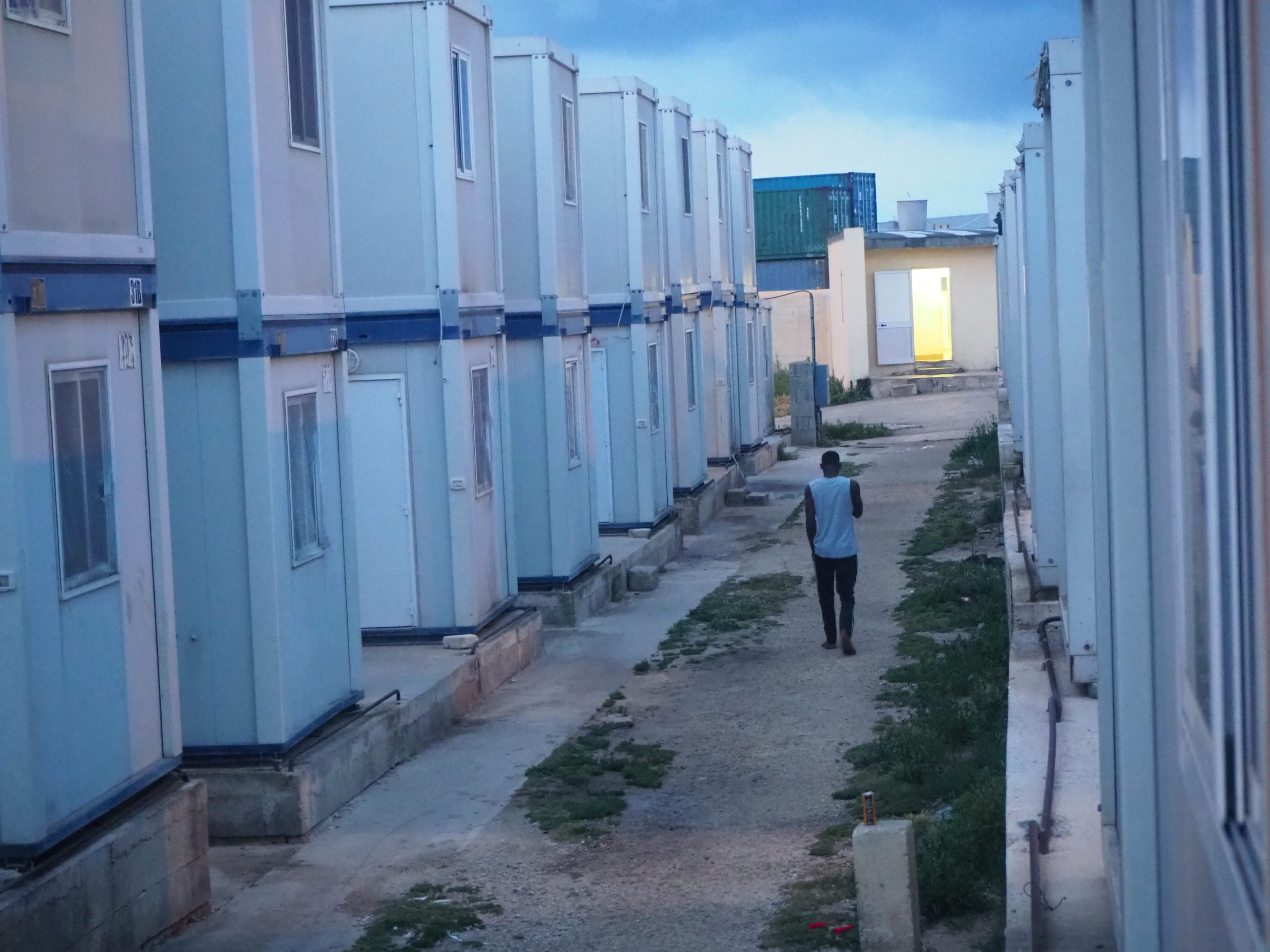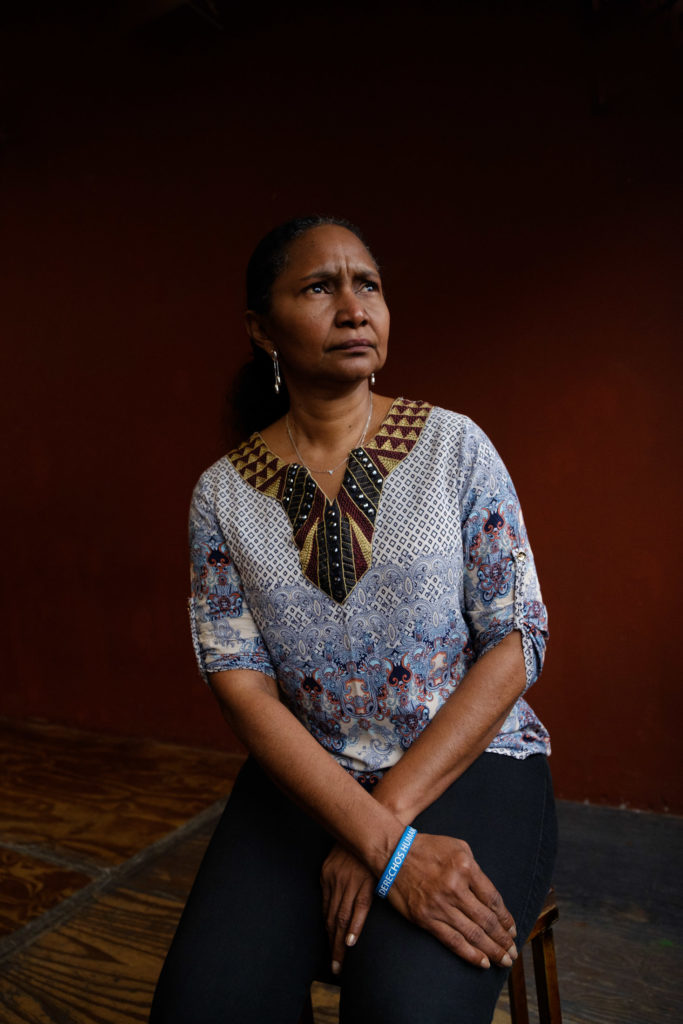
Elcy Serna, one of the people featured in this short film, is the definition of integrity and courage.
Over 60 years of armed conflict has destroyed many lives but has also demonstrated the remarkable resilience of Colombians. Elcy was kidnapped and sexually abused at a young age by FARC guerrillas, and as a result she became a social leader for the defense of women’s rights. She leads an organization that provides counsel and facilitates safe spaces for women to bring complaints of sexual abuse to the attention of the government. For this, her life is at risk. Anonymous threats to her and her family are delivered to her frequently. Yet, this courageous woman carries on in her struggle for social justice in a country torn by decades of armed conflict, rooted in deep socioeconomic, racial, regional, and gender inequalities.
Amplifying stories of resilience, like Elcy’s, is at the heart of Historias para lo que viene (Histories for the Future, or for what lies ahead), a collaboration between historians, victims of the armed conflict, social communicators, designers, and artists based at Universidad de los Andes and Universidad Nacional de Colombia in Bogotá. We seek to enrich the public debate about peace in Colombia by telling stories that bring together memories of resilience with historical explanations of the causes of war. We believe that building peace and justice in societies that have suffered cycles of violations of human rights—in Colombia and elsewhere—requires society’s acknowledgement of both the horror of what happened, and the deep-rooted causes that generated it. Non-repetition involves understanding and transforming the conditions that made violence possible. With our narratives we hope to make Colombians aware that the conflict is not a matter of victims and perpetrators alone, but it involves all of us. We are all part of unequal economic, social and cultural structures—including racism and sexism—that perpetuate violence.
This short film captures some of the work we have done in collaboration with Tim Raphael and Julie Winokur of Newest Americans, who not only documented the process but generously helped develop it by sharing their insights and experience with storytelling. Like Elcy, others whose lives were torn apart by war also shared their stories with us: Esmeralda, Doraly, Sergio, Roberto, Gladys, and Isaac participated in our workshops and told us about how they carry on with their lives, with contagious optimism despite it all, and refuse to be reduced to the category of “victims.” Our task is to do justice to their experience and amplify their voices so that we understand their stories are not just about themselves alone: they are stories about all of us, who share a past, a present, and must come together to build a peaceful future.

Esmeralda Arboleda, originally from Tumaco, Colombia but displaced by paramilitary violence against her and her family, poses for a portrait with her son Kevin Daniel Moreno Angulo, 12. (Photo by Tom Laffay) 
Roberto Castaneda, who served six years in the army and whose father was killed, works for peace and reconciliation and wants to pass those values onto his son and grandson by being a role model. (Photo by Tom Laffay) 
Doraly Pérez, originally from the department of Putumayo, was forced from her home by paramilitary groups and did not have time to pack anything but one bag before fleeing violence. The only object she brought was her bible. She wrote a letter to her youngest daughter who was 2 years old when her family fled and is continuing to deal with that trauma, but her daughter she says “is my best friend, we’ll go through life together.” (Photo by Tom Laffay) 
Sergio Acevedo, originally from the department of Chocó, had to flee from the Colombian army after witnessing a “false positive” killing and was targeted himself. After hiding in Panama, he made his way back to Colombia where he eventually settled in Suba, Bogotá where he has rebuilt his life and wants to give a better life to his son. (Photo by Tom Laffay)
